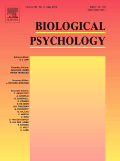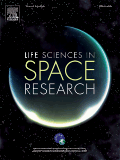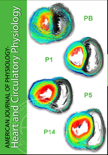
Journal of Physiological Anthropology
Scope & Guideline
Bridging Anthropology and Health for a Better Tomorrow
Introduction
Aims and Scopes
- Human Adaptation and Variation:
Explores how various populations adapt physiologically to their environments, including studies on genetic adaptations, body composition, and metabolic responses. - Impact of Lifestyle and Environment on Physiology:
Investigates the effects of lifestyle choices, environmental factors, and cultural practices on physiological health, including nutrition, physical activity, and living conditions. - Aging and Health:
Focuses on physiological changes associated with aging, including frailty, sarcopenia, and metabolic syndromes, particularly in diverse populations. - Physiological Responses to Stressors:
Examines how physiological systems respond to various stressors, including environmental extremes (e.g., high altitude, temperature changes) and psychological stress. - Interdisciplinary Approaches:
Encourages the integration of methodologies from anthropology, physiology, genetics, and public health to address complex questions about human health and adaptation.
Trending and Emerging
- Genetic Influences on Physiology:
Research exploring the relationship between genetic polymorphisms and physiological outcomes is on the rise, indicating a trend towards understanding the biological basis of health disparities. - Integration of Mental and Physical Health:
Studies examining the connections between psychological factors (e.g., stress, sleep) and physiological responses are increasingly common, showcasing an interdisciplinary approach to health. - Environmental and Climatic Adaptations:
There is a growing body of work investigating how environmental stressors (such as high altitude and temperature extremes) affect physiological responses, reflecting an interest in adaptation to climate change. - Nutritional Anthropology and Metabolic Health:
Research focusing on the impact of nutrition on metabolic health, including studies on the relationship between dietary patterns and physiological outcomes, is becoming more prominent. - Technological Advances in Physiological Measurement:
The use of innovative methodologies, such as advanced imaging techniques and wearable technology, to assess physiological responses is trending, reflecting the journal's commitment to modern research practices.
Declining or Waning
- Traditional Anthropometric Studies:
Research focusing solely on basic anthropometric measurements (e.g., height, weight) without integrating physiological or environmental contexts appears to be waning, as the field moves towards more complex and interdisciplinary studies. - Single-Factor Health Studies:
Studies that isolate a single factor (such as dietary intake or exercise) without considering the multifactorial nature of health and physiology are becoming less common, as the journal emphasizes holistic approaches. - Historical Physiological Studies:
Investigations into historical physiological trends (e.g., historical height data) are less frequent, possibly due to a shift towards current and applied research that addresses contemporary health issues.
Similar Journals

BIOLOGICAL PSYCHOLOGY
Fostering Innovative Perspectives in Biological PsychologyBIOLOGICAL PSYCHOLOGY is a prominent academic journal published by Elsevier, recognized for its critical contributions to the fields of neuropsychology and physiological psychology. With a steadfast publication history since 1973, it has established itself as a vital resource for researchers, professionals, and students interested in the intricate connections between biological processes and psychological phenomena. As evidenced by its esteemed 2023 Q1 ranking in Neuropsychology and Physiological Psychology and Q2 in Neuroscience (miscellaneous), this journal occupies a prestigious position in the academic community, fostering innovative research and scholarly discourse. The journal offers a rigorous platform for the publication of empirical studies, theoretical articles, and reviews that illuminate the relationship between brain function and behavior. Although Open Access options are not available, readers can benefit from robust subscription access to its cutting-edge content. With an increasing focus on interdisciplinary approaches, BIOLOGICAL PSYCHOLOGY aims to advance understanding in a rapidly evolving field, making it an essential reference for those at the forefront of psychological and neuroscientific research.

Physiological Reviews
Connecting Scholars with Cutting-Edge Physiological InsightsPhysiological Reviews is a prestigious journal published by the American Physiological Society, dedicated to advancing our understanding of physiology across various domains. With an impressive impact factor that places it in Q1 quartiles for medicine, molecular biology, and physiology as of 2023, this journal is recognized as a leading source of high-quality reviews and research analyses. The journal has been a vital resource for the scientific community since its inception in 1945, providing in-depth and comprehensive insights that are crucial for both scholars and practitioners in the field. Although not an open-access publication, it remains widely accessible through institutional subscriptions, ensuring that crucial research findings are disseminated efficiently. With Scopus rankings that place it in the top percentile across multiple categories, Physiological Reviews continues to be an essential platform for the latest advancements and discoveries in physiology, making it indispensable for researchers, professionals, and students alike.

American Journal of Biological Anthropology
Bridging Disciplines to Illuminate Human BiologyThe American Journal of Biological Anthropology, published by WILEY, is a premier journal in the field of biological anthropology, boasting critical insights into human biological diversity, evolution, and adaptation. With its ISSN 2692-7691, this journal has established itself firmly within the research community, achieving a Q1 ranking in key disciplines such as Anatomy, Anthropology, Archeology, and Paleontology as of 2023. This indicates its significant impact, with Scopus rankings placing it in the top tiers across diverse fields, including a stellar rank of 13th out of 113 in Paleontology. Offering open access possibilities, the journal facilitates wider dissemination of groundbreaking research and is committed to advancing knowledge that intersects genetics, epidemiology, and anthropology. Based in the United States, the journal continually fosters an international dialogue among researchers, professionals, and students eager to explore the complexities of human biology through a robust and interdisciplinary lens.

Life Sciences in Space Research
Exploring the Frontiers of Life Beyond EarthLife Sciences in Space Research, published by ELSEVIER, is a leading journal dedicated to advancing the understanding of life sciences in the context of space exploration and extraterrestrial environments. With a focus on interdisciplinary research, the journal addresses critical topics spanning Agricultural and Biological Sciences, Astronomy and Astrophysics, Ecology, and Health, Toxicology and Mutagenesis. Established in 2014 and set to continue through 2024, it is recognized with a solid impact factor and impressive quartile rankings—including Q2 in several categories, reflecting its influential position among contemporary scientific discourse. The journal welcomes a diverse array of research articles that delve into the implications of space travel on biological systems, innovative ecological practices for sustained extraterrestrial habitation, and critical health-related issues associated with radiation exposure. Researchers, professionals, and students will find Life Sciences in Space Research an invaluable resource for cutting-edge insights and developments in the rapidly evolving field of astrobiology and space science. For more information, please access the journal through its designated platform.

PHYSIOLOGICAL AND BIOCHEMICAL ZOOLOGY
Bridging Disciplines for a Deeper Understanding of ZoologyPhysiological and Biochemical Zoology is a distinguished peer-reviewed journal published by University of Chicago Press, focusing on the interrelated fields of animal physiology, biochemistry, and zoology. With a strong commitment to advancing scientific understanding, this journal serves as a vital resource for researchers, professionals, and students alike, providing a platform for the latest findings and advancements in the field. Ranking in the top quartile (Q1) in Animal Science and Zoology as of 2023, and showcasing a substantial convergence of historical data from 1999 to 2023, its impact in the academic community is underscored by its engagement with high-quality research. While it also appears in the third quartile for Biochemistry and Physiology, the journal successfully integrates these disciplines, reflecting the complexity of biological systems. Available for reading via various access options, this journal is essential for anyone seeking to deepen their knowledge or contribute to the field of Zoological sciences.

JOURNAL OF PHYSIOLOGY AND PHARMACOLOGY
Bridging gaps between theory and application in life sciences.JOURNAL OF PHYSIOLOGY AND PHARMACOLOGY is a distinguished publication presented by the POLISH PHYSIOLOGICAL SOC, dedicated to advancing the fields of physiology and pharmacology. Since its inception in 1991, this journal has maintained a commitment to disseminating vital research findings, contributing to the growing body of knowledge essential for understanding complex biological systems and their interactions with pharmacological agents. With a consistent focus on interdisciplinary studies, the journal holds a Q3 categorization in both Medicine and Pharmacology as well as Physiology for 2023, reflecting its relevance in these crucial fields. Although specific access options are not available, the journal's robust indexing and rankings in Scopus signify its credibility and the high caliber of its contributions, appealing to researchers, professionals, and students alike. Operating from the picturesque Jagiellonian University in Krakow, Poland, this journal not only enriches the academic landscape but also fosters global collaboration and innovation in the life sciences.

FISH PHYSIOLOGY AND BIOCHEMISTRY
Exploring the Depths of Aquatic ScienceFISH PHYSIOLOGY AND BIOCHEMISTRY, published by Springer, is a leading journal in the fields of aquatic science, biochemistry, and physiology, with an impressive trajectory since its inception in 1986 and continuing through 2024. Operating from the Netherlands, this journal serves as a vital platform for researchers, professionals, and students alike, showcasing innovative studies that explore the physiological and biochemical aspects of fish, contributing significantly to our understanding of aquatic ecosystems and their inhabitants. With a robust impact factor reflected in its Q1 status in Aquatic Science and notable rankings in other relevant categories, FISH PHYSIOLOGY AND BIOCHEMISTRY maintains a strong scholarly influence, evidenced by its Scopus ranking within the top quartiles of various biological sciences disciplines. While the journal does not currently offer open access options, it remains a cornerstone for advancing knowledge and fostering collaboration within the community dedicated to aquatic biology and related fields.

AMERICAN JOURNAL OF PHYSIOLOGY-HEART AND CIRCULATORY PHYSIOLOGY
Exploring the depths of heart and circulatory physiology.AMERICAN JOURNAL OF PHYSIOLOGY-HEART AND CIRCULATORY PHYSIOLOGY, published by the American Physiological Society, is a premier journal dedicated to advancing the understanding of cardiovascular physiology. With an ISSN of 0363-6135 and an E-ISSN of 1522-1539, this esteemed journal has been a vital resource since its inception in 1977, and continues to publish cutting-edge research that shapes the fields of cardiology and physiology. Recognized as a Q1 journal in multiple categories, it ranks impressively within the top tier of its fields, including a notable 18th percentile rank in Physiology (medical). The journal’s impact factor and extensive reach in the academic community affirm its significance in promoting innovative studies and insights. While it does not offer open access options, the journal remains accessible through institutional subscriptions, making it an essential tool for researchers, professionals, and students alike, who are keen to stay abreast of the latest developments in heart and circulatory physiology. For further information, the journal is based in the United States at 6120 Executive Blvd, Suite 600, Rockville, MD 20852. As a cornerstone of cardiovascular research, it invites contributions that push the boundaries of knowledge and enhance clinical practice.

AMERICAN JOURNAL OF HUMAN BIOLOGY
Connecting the Dots of Human Anatomy, Ecology, and GeneticsAmerican Journal of Human Biology (ISSN: 1042-0533, E-ISSN: 1520-6300) is a well-respected publication in the field of human biology, published by Wiley. Since its inception in 1989, the journal has provided a critical platform for advancing human biological research, featuring articles that encompass a wide range of interdisciplinary topics including anatomy, anthropology, ecology, evolution, and genetics. It has consistently achieved high impact, reflected in its prestigious quartile rankings such as Q1 in anthropology and Q2 in anatomy for 2023. With its robust Scopus rankings, notably ranking #10 in medicine - anatomy, the journal serves not only researchers but also professionals and students aiming to keep abreast of the latest developments in human biology. While the journal currently does not offer open access, it remains a vital resource for those committed to understanding human biological realities and challenges in an evolving global landscape. Its insightful contributions are indispensable in promoting scholarly dialogue and advancing knowledge across multiple relevant fields.

Journal of Obesity
Innovating solutions for a healthier future.The Journal of Obesity, published by HINDAWI LTD, stands at the forefront of research in the field of Endocrinology, Diabetes and Metabolism, providing a vital platform for the dissemination of knowledge and advancements in obesity research. With an impact factor that reflects its significance in the academic community—holding a prestigious Q2 ranking in its category—the journal has continuously evolved since its establishment as an Open Access publication in 2010, promoting unrestricted access to high-quality research. Operating from Egypt, the journal focuses on disseminating impactful studies that address the global epidemic of obesity, making a meaningful contribution to public health solutions. Researchers, professionals, and students in the related fields will find valuable insights and innovative findings within its pages, as the journal endeavors to bridge the gap between scientific research and practical application. As of 2023, it occupies a notable position, ranked #58 out of 244 in Scopus, showcasing its commitment to excellence and relevance in the rapidly evolving landscape of obesity research.